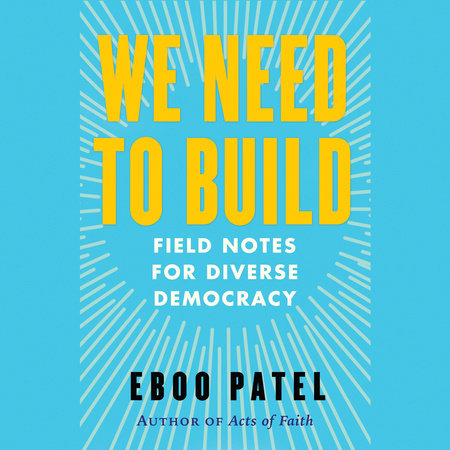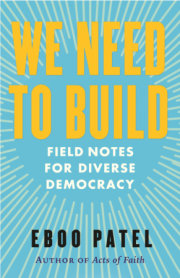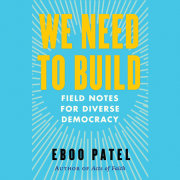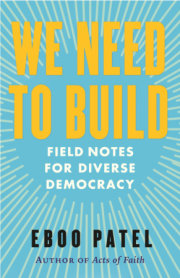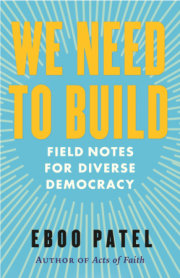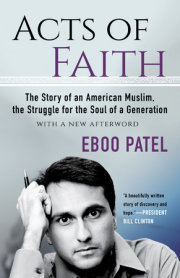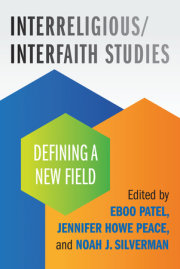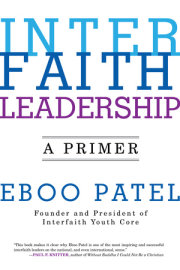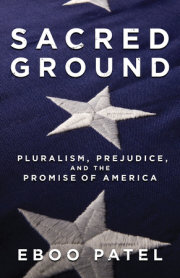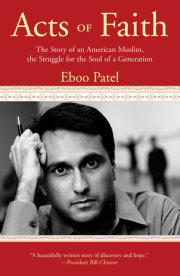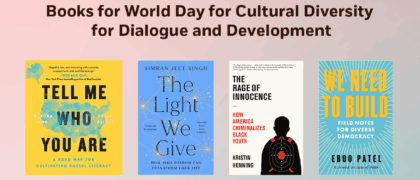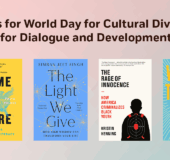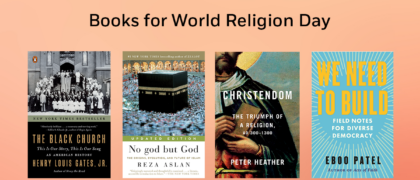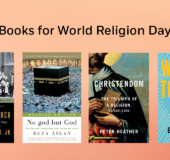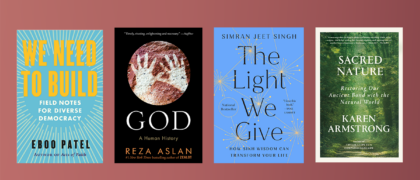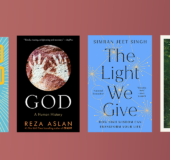Introduction
SECTION ONE: CRITICS AND BUILDERS
CHAPTER ONE
Critic: A Personal Journey
CHAPTER TWO
Builder, Creating Interfaith America
CHAPTER THREE
Jen Bailey, Critic and Builder
CHAPTER FOUR
Campus as Crucible
SECTION TWO: THE GOOD SOCIETY
CHAPTER FIVE
America, the People’s Potluck
CHAPTER SIX
The Obama Story, the Trump Story
CHAPTER SEVEN
The Genius of Religious Institutions
SECTION THREE: CONSIDERATIONS AND CAUTIONS
CHAPTER EIGHT
The Challenge of Being in Charge
CHAPTER NINE
Align the Substantive and the Symbolic
CHAPTER TEN
Be Guided by a Vision For, Not an Anger Against
CHAPTER ELEVEN
Embrace Diversity, Including the Differences You Don’t Like
CHAPTER TWELVE
Embrace the Multiple Languages of Social Change
CHAPTER THIRTEEN
Be Careful Turning Identity Categories into Ideological Categories
CHAPTER FOURTEEN
Seek Solutions, Then Seek Scale
CHAPTER FIFTEEN
Welcome All Allies
CHAPTER SIXTEEN
Persuade Your Opponents
CHAPTER SEVENTEEN
Consider Constructive Engagement Before You Cancel
CHAPTER EIGHTEEN
Stand on the Balcony and Think of a Hedgehog
CHAPTER NINETEEN
Appreciate the History of Your Movement, Then Extend It
CHAPTER TWENTY
Be Cautious About Becoming a Symbol
CHAPTER TWENTY-ONE
Be Cautious About Making Generalizations and Speaking for Others
CHAPTER TWENTY-TWO
Be Cautious of the Single Story
CHAPTER TWENTY-THREE
Be Cautious About the False Social Map
CHAPTER TWENTY-FOUR
Be Cautious When Accusing Others
CONCLUSION
A Letter to My Sons, Future Builders of Diverse Democracy
Acknowledgments
Notes
Index

